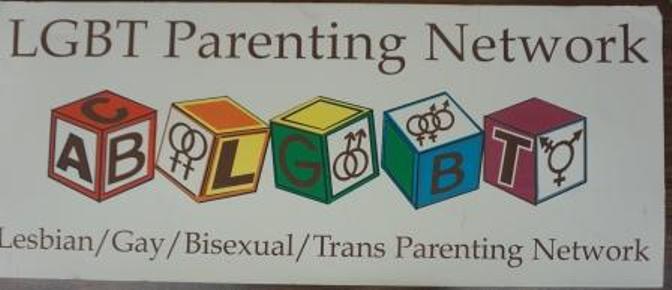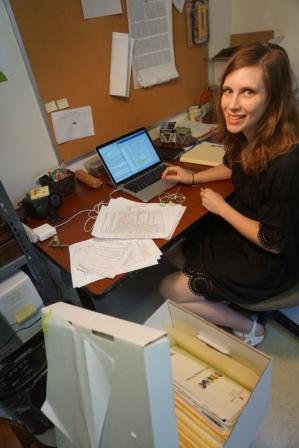 For those that I have not met, my name is Lucie Handley-Girard and I was hired for the summer as the Archives Assistant. This was made possible thanks to grants by Young Canada Works and the Community Outreach Partnership Grant of the Metropolitan Community Church of Toronto. In September I will be returning to U of T’s Faculty of Information (iSchool), for my final year in the Archives and Records Management program. This summer I am inputting Finding Aids (the archival equivalent of a collection’s Coles Notes) into Archeion, Ontario’s archival repository. Archeion is an online resource to help researchers and archivists assess a particular repository’s holdings. It is an important platform as many archives do not have the capacity, technological or otherwise to facilitate online access to the degree Archeion offers. In my first week after giving me her customary tour, our Volunteer and Community Outreach Coordinator took me into the basement to introduce me to the LGBTQ Parenting Network records. Behind two dress forms, boxes of duplicates and furnace filters, I discovered my other project. Like many things in the archives, they are voluminous, groundbreaking in content, and… heavy. I had no idea the extent or really anything about the LGBTQ PN’s activities prior to being given an immensely helpful 40-page box list prepared by my predecessor Sally Butterfield. Since then I have learned that Rachel Epstein created “Dykes Planning Tykes” (DPT) in 1997 with co-creator, midwife Kathie Duncan, a twelve week course for lesbian/bi/queer women considering parenthood, due to an experiential lack of resources. Then in 2001, Rachel was hired to develop the LGBT Parenting Network out of The Family Service Association of Toronto (FSA), (now Family Service Toronto). In 2007 LGBTQ PN (with Q addition) arrived at the Sherbourne Health Centre, where it still operates. DPT spawned “Daddies and Papas 2B” for gay/bi/queer men (developed by Chris Veldhoven), and then “Trans Fathers 2B” for trans men considering parenthood, developed by nurse/midwife Robin Fern who, sadly, recently passed away. The course was further refined by j wallace and Andy Inkster and is now called Trans-Masculine People Considering Pregnancy. These courses continue to provide resources and support to LGBTQ parents and prospective parents through their navigation of health care, legal issues, and social services. Rachel who is also a The ArQuives Director, has been a LGBTQ parenting activist, researcher, and educator for over 20 years, and the LGBTQ PN, particularly in its infancy was (we think) one of a kind in North America.
For those that I have not met, my name is Lucie Handley-Girard and I was hired for the summer as the Archives Assistant. This was made possible thanks to grants by Young Canada Works and the Community Outreach Partnership Grant of the Metropolitan Community Church of Toronto. In September I will be returning to U of T’s Faculty of Information (iSchool), for my final year in the Archives and Records Management program. This summer I am inputting Finding Aids (the archival equivalent of a collection’s Coles Notes) into Archeion, Ontario’s archival repository. Archeion is an online resource to help researchers and archivists assess a particular repository’s holdings. It is an important platform as many archives do not have the capacity, technological or otherwise to facilitate online access to the degree Archeion offers. In my first week after giving me her customary tour, our Volunteer and Community Outreach Coordinator took me into the basement to introduce me to the LGBTQ Parenting Network records. Behind two dress forms, boxes of duplicates and furnace filters, I discovered my other project. Like many things in the archives, they are voluminous, groundbreaking in content, and… heavy. I had no idea the extent or really anything about the LGBTQ PN’s activities prior to being given an immensely helpful 40-page box list prepared by my predecessor Sally Butterfield. Since then I have learned that Rachel Epstein created “Dykes Planning Tykes” (DPT) in 1997 with co-creator, midwife Kathie Duncan, a twelve week course for lesbian/bi/queer women considering parenthood, due to an experiential lack of resources. Then in 2001, Rachel was hired to develop the LGBT Parenting Network out of The Family Service Association of Toronto (FSA), (now Family Service Toronto). In 2007 LGBTQ PN (with Q addition) arrived at the Sherbourne Health Centre, where it still operates. DPT spawned “Daddies and Papas 2B” for gay/bi/queer men (developed by Chris Veldhoven), and then “Trans Fathers 2B” for trans men considering parenthood, developed by nurse/midwife Robin Fern who, sadly, recently passed away. The course was further refined by j wallace and Andy Inkster and is now called Trans-Masculine People Considering Pregnancy. These courses continue to provide resources and support to LGBTQ parents and prospective parents through their navigation of health care, legal issues, and social services. Rachel who is also a The ArQuives Director, has been a LGBTQ parenting activist, researcher, and educator for over 20 years, and the LGBTQ PN, particularly in its infancy was (we think) one of a kind in North America. 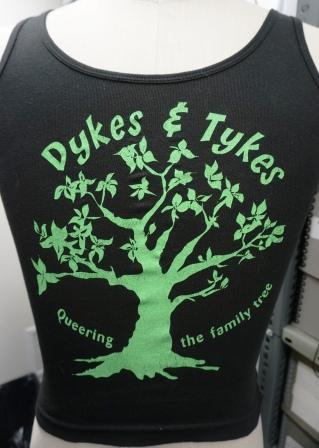 The purpose of archival processing is to make records that are deemed to have enduring value accessible to future researchers. This involves arranging records, if they have not been put into an accessible order by the donor, and describing them which entails developing a Finding Aid. Finding Aids showcase a collection’s provenance, include an administrative history or biographical sketch of principle contributors, a custodial history, and a variety of other important tidbits. Finding Aids differ depending on collection size, their arrangement, depth of description, and practices of a particular archives. Fonds (the fancy archival term for a collection), are arranged into series, within series are files, and within each file – items. Description within a Finding Aid can be undertaken at each level of arrangement. Think matryoshka doll or turducken, each layer with its own personality forming a beautiful whole.
The purpose of archival processing is to make records that are deemed to have enduring value accessible to future researchers. This involves arranging records, if they have not been put into an accessible order by the donor, and describing them which entails developing a Finding Aid. Finding Aids showcase a collection’s provenance, include an administrative history or biographical sketch of principle contributors, a custodial history, and a variety of other important tidbits. Finding Aids differ depending on collection size, their arrangement, depth of description, and practices of a particular archives. Fonds (the fancy archival term for a collection), are arranged into series, within series are files, and within each file – items. Description within a Finding Aid can be undertaken at each level of arrangement. Think matryoshka doll or turducken, each layer with its own personality forming a beautiful whole. 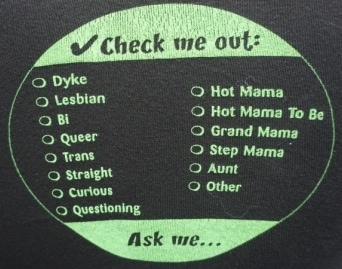 So far the quantity of the LGBTQ PN records have proven challenging. Surveying 15 Hollinger boxes (fancy archival bankers boxes) brimming with files, causes one to forget if there was the exact same document three boxes previous. A common archival issue, and when I wish my brain was an automated rolodex. An amazing thing about the LGBTQ PN records is their profundity, demonstrating Rachel’s deep engagement and passion for her work. Beyond the vast array of presentations given, conferences attended, advocacy, and external projects, Rachel’s collection of academic, newspaper, internet articles and magazines allow for a unique repository of LGBTQ activist history and community goings-on in North America from 1968 to 2014. I do not need a crystal ball to foresee the LGBTQ PN fonds as highly valuable to future researchers.
So far the quantity of the LGBTQ PN records have proven challenging. Surveying 15 Hollinger boxes (fancy archival bankers boxes) brimming with files, causes one to forget if there was the exact same document three boxes previous. A common archival issue, and when I wish my brain was an automated rolodex. An amazing thing about the LGBTQ PN records is their profundity, demonstrating Rachel’s deep engagement and passion for her work. Beyond the vast array of presentations given, conferences attended, advocacy, and external projects, Rachel’s collection of academic, newspaper, internet articles and magazines allow for a unique repository of LGBTQ activist history and community goings-on in North America from 1968 to 2014. I do not need a crystal ball to foresee the LGBTQ PN fonds as highly valuable to future researchers. 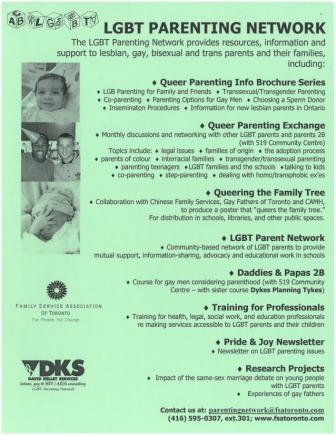 Author: Lucie Handley-Girard, The ArQuives Archives Assistant
Author: Lucie Handley-Girard, The ArQuives Archives Assistant

